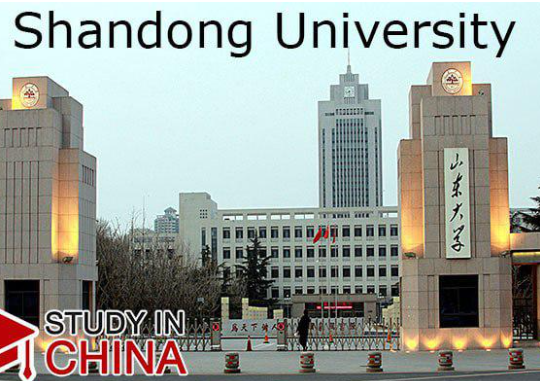The Chinese government scholarship for Shandong University provides financial aid and academic support to international students.
Table of Contents
Overview of Chinese Government Scholarships
The Chinese Government Scholarship program, established by the Ministry of Education of the People’s Republic of China, aims to foster international academic exchange and enhance mutual understanding between China and other countries.

Types of Scholarships Offered by the Chinese Government
Full Scholarship
The Full Scholarship covers tuition, accommodation, living allowance, and comprehensive medical insurance. Specifically designed for international students, it provides a comprehensive package to ensure a worry-free academic journey in China.
Partial Scholarship
In contrast, the Partial Scholarship includes one or several components of the Full Scholarship. It is flexible and caters to students who may only need specific financial support, like tuition fees or living expenses.
General Eligibility Criteria for Applicants
To be eligible for the Chinese Government Scholarships, applicants must meet several key criteria:
- Nationality and Age: Applicants must be non-Chinese citizens and typically under the age of 35 for master’s programs and under 40 for doctoral programs.
- Academic Requirements: A high school diploma is mandatory for undergraduate programs, while a bachelor’s or master’s degree is required for postgraduate programs, respectively.
- Language Proficiency: Depending on the program, proficiency in either Chinese (HSK test score) or English (IELTS or TOEFL test score) is required.
- Health: Applicants must meet the health standards set for international students by the Chinese government, ensuring they are medically fit to study abroad.
Shandong University Scholarship Program
Shandong University, one of the oldest and most prestigious universities in China, has a rich history dating back to its founding in 1901. The university ranks consistently high in various national and international rankings, reflecting its academic prowess and esteemed reputation.
Brief History and Reputation of Shandong University
Shandong University began as the Shandong Imperial College, evolving through the decades into a modern comprehensive university. Its history is a testament to China’s educational development, intertwining with the nation’s modern history. The university’s alumni include prominent scientists, politicians, and scholars, contributing significantly to various fields.
Specific Scholarships Available at Shandong University
Shandong University offers a range of scholarships to international students.
- Confucius Institute Scholarship: Aimed at promoting Chinese language and culture, this scholarship covers tuition, accommodation, and a monthly living allowance of approximately CNY 2,500.
- Chinese Government Scholarship: It provides a full or partial coverage for tuition, accommodation, a monthly stipend of up to CNY 3,000 for master’s students, and CNY 3,500 for doctoral students, along with comprehensive medical insurance.
- Shandong Provincial Government Scholarship: This scholarship supports international students with a substantial reduction in tuition fees, typically covering up to 50% of the total cost.
Application Process for the Chinese Government Scholarship at Shandong University
Applying for the Chinese Government Scholarship at Shandong University is a straightforward yet meticulous process. Candidates must carefully follow each step and meet all requirements to increase their chances of securing the scholarship.
Step-by-Step Guide to Applying
- Eligibility Check: Ensure you meet the age, academic, and nationality criteria specific to the scholarship.
- University Selection: Choose Shandong University as your preferred institution.
- Application Portal: Apply through the CSC Online Application System, where you will create a profile and fill in the necessary details.
- Selecting the Scholarship Type: Opt for the type of scholarship (full or partial) based on your needs and qualifications.
- Academic Documents Preparation: Gather all academic transcripts, certificates, and recommendation letters.
- Language Proficiency Proof: Include HSK (for Chinese-taught programs) or IELTS/TOEFL scores (for English-taught programs).
- Health Examination: Complete the medical examination as per the guidelines provided by the Chinese Government.
- Submission of Application: Submit the application online and keep a printed copy for your records.
Required Documentation and Submission Deadlines
- Application Form: Printed and signed CSC application form.
- Educational Documents: Authenticated transcripts and diplomas.
- Recommendation Letters: Two letters from professors or academic advisors.
- Statement of Purpose: A detailed personal statement or research proposal.
- Passport Copy: A valid passport for the duration of the scholarship.
- Physical Examination Record.
Benefits and Coverage of the Scholarship
Tuition Fee Waivers
The scholarship provides full tuition waivers for the entire duration of the study program. This waiver covers all academic fees, including registration, laboratory experiments, internship, and basic textbooks costs. It effectively removes a significant financial barrier, allowing students to allocate their resources towards other aspects of their academic journey.
Living Allowances and Accommodation Details
- Monthly Stipend: Students receive a monthly allowance to cover their living expenses. The amount varies based on the level of study: approximately CNY 2,500 for undergraduates, CNY 3,000 for master’s students, and CNY 3,500 for doctoral students.
- Accommodation: Free university housing is provided, typically in the form of a shared dormitory room. Alternatively, students can choose off-campus accommodation, for which they receive a monthly accommodation subsidy.
Additional Benefits
| Benefit | Details | Coverage |
|---|---|---|
| Health Insurance | Comprehensive medical insurance as per CSC standards | Full |
| Language Courses | Access to Chinese language courses | Depending on the program and student’s proficiency level |
Health Insurance: The scholarship includes comprehensive health insurance, which is in line with the Chinese Government’s standards for international students. This insurance covers major medical treatments and hospitalization, providing a safety net for health-related expenses.
Language Courses: For students enrolled in Chinese-taught programs, or those looking to improve their Mandarin proficiency, the scholarship offers free Chinese language courses. This not only aids in their academic life but also enriches their cultural experience in China.
Selection Criteria and Evaluation Process
The selection process for the Chinese Government Scholarship at Shandong University is competitive, focusing on identifying the most capable and promising students.
Academic Performance Requirements
- Undergraduate Programs: Applicants must have a high school diploma with excellent grades, typically in the top 20% of their class.
- Postgraduate Programs: For master’s and doctoral programs, a bachelor’s or master’s degree with a strong academic record is essential. A GPA of 3.0 (or equivalent) is generally the minimum requirement.
Academic excellence is a key factor, as it demonstrates the applicant’s ability to cope with challenging university courses.
Language Proficiency Tests (if applicable)
- Chinese-taught Programs: An HSK (Hanyu Shuiping Kaoshi) level 4 or above is usually required, indicating a good command of the Chinese language.
- English-taught Programs: For non-native English speakers, an IELTS score of 6.0 or a TOEFL score of 80 and above is often necessary.
Language proficiency is crucial for international students to ensure they can effectively participate in their chosen programs.
Interviews and Other Assessment Methods
- Interviews: Some programs may conduct interviews (either in-person or via video call) to assess the applicant’s motivation, communication skills, and suitability for the program.
- Portfolio Review: For certain fields like art and design, a portfolio showcasing previous work may be required.
- Research Proposals: For research-focused programs, especially at the doctoral level, a detailed research proposal is often necessary to evaluate the applicant’s research abilities and goals.

Post-Acceptance Procedures and Responsibilities
After receiving the prestigious Chinese Government Scholarship at Shandong University, there are several important steps and responsibilities that recipients must undertake. These include the visa application process, enrollment formalities, and understanding the expectations and obligations tied to the scholarship.
Visa Application and Enrollment Processes
- Visa Application: Scholarship recipients must apply for a student visa (X1 or X2 visa) at the Chinese embassy or consulate in their home country. Required documents typically include the passport, Admission Notice from Shandong University, Visa Application for Study in China (JW201 or JW202 form), and a physical examination record.
- Arrival and Registration: Upon arrival in China, students must register at Shandong University within the specified timeframe. Late registration without prior approval may result in the forfeiture of the scholarship.
- Opening a Bank Account: It’s essential to open a bank account in China to receive the monthly living allowance provided by the scholarship.
- Orientation Program: Participating in the university’s orientation program is crucial. It provides essential information about campus life, academic policies, and support services.
Expectations and Obligations of Scholarship Recipients
- Academic Commitment: Recipients are expected to maintain a high level of academic performance. Failure to meet the academic standards can result in scholarship termination.
- Attendance: Regular attendance in classes and academic activities is mandatory. Absences must be justified and approved.
- Cultural and Social Participation: Engaging in cultural exchanges and social activities is encouraged to promote mutual understanding between international and Chinese students.
- Compliance with Laws and Regulations: Students must abide by Chinese laws and university regulations. Any misconduct or violation can lead to disciplinary actions, including scholarship revocation.
- Annual Review: The scholarship status is subject to an annual review based on academic performance, discipline, and adherence to scholarship requirements.

